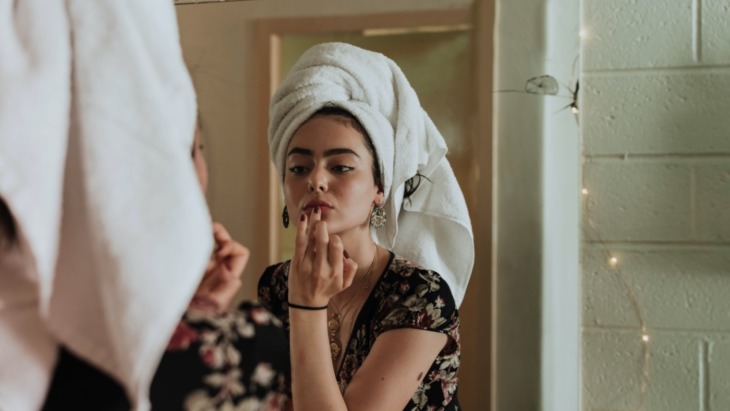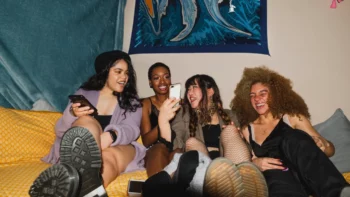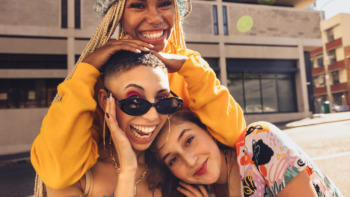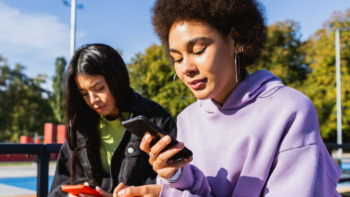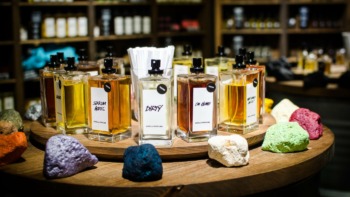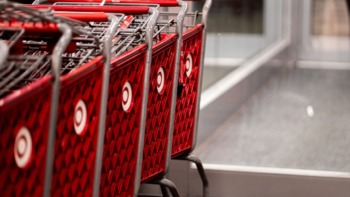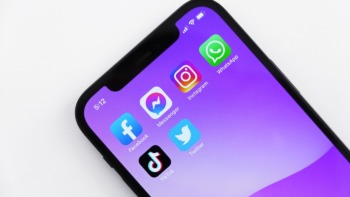We explore some of the health and beauty brands that made Gen Z’s top 10 list last quarter – and the measures they are taking to engage with this influential consumer demographic.
Our latest Youth Brand Affinity Tracker shines a light on the health and beauty brands that made a positive impression with the 16-24-year-old demographic over the last quarter. Walgreens, CVS, and Bath & Body Works managed to maintain the top three spots across brand visibility, brand engagement, purchase intent and brand advocacy. Meanwhile, brands such as Lush and e.l.f cosmetics are creeping up the ranks once more – watch this space for the Q2 results!
Adapting for COVID: Walgreens and CVS
There’s no change at the top in the health and beauty category, with nationwide chains Walgreens and CVS securing the top two spots on our Youth Brand Affinity Tracker for the second quarter in a row. The two leading drugstores have been relied upon throughout the pandemic for essential products, and now they’re playing an even more important role as some of the main providers of the COVID-19 vaccine.
View this post on Instagram
Walgreens is primarily known for its physical stores, but they are adapting both to the digital era and the current situation by offering a new pickup service and partnering with DoorDash and Postmates to improve their delivery options. Plus, as part of their #ThisIsOurShot campaign, the brand has teamed up with Uber to provide free rides to Walgreen stores to those in need of transportation to get their vaccine.
As well as being instrumental in the vaccine rollout program, CVS has been active on social media throughout the pandemic. Its dedicated beauty Instagram account is the perfect place for tech-savvy students to hear about the brand’s latest offers. Plus, with 69% of Gen Zs using Instagram for shopping inspiration, CVS is regularly feeding into Gen Zs purchasing power by posting their makeup and hair tips online, as well as highlighting the cruelty-free brands they sell – to help gain brand loyalty from this ethically-aware young demographic.
When shopping in the health and beauty sector, 57% of the college students we surveyed said they prioritize affordability. With such a huge variety of brands and products available, Walgreens and CVS fully cater to this need. Walgreens takes the top spot on our affinity tracker with the highest purchase intent across the student demographic (42%), closely followed by CVS (40%).
Making a statement: Ulta and Sephora
Within the beauty sector, we see multi-brand retailers Ulta and Sephora in the lead across all metrics. This success with Gen Z can be partly attributed to the action both brands have taken to support issues that the young people care about. Plus, with 63% of students prioritizing quality when it comes to shopping for health and beauty – both brands are ticking all the right boxes.
In light of the Black Lives Matter movement, Ulta made a strong statement in February when they announced actress Tracee Ellis Ross as Diversity and Inclusion Advisor, as well as committing to double the number of Black-owned brands they sell and feature more Black women in their ads. This is a great example of a business responding to the movement with proactive changes, not simply statements of support, and it’s sure to impress their politically-minded Gen Z customers.
View this post on Instagram
Sephora, too, has been vocal on their social media platforms by highlighting ongoing issues and supporting movements like International Women’s Day and Black Lives Matter. More recently, the brand has spoken out against Asian hate by promoting the hashtag #StopAsianHate and supporting Act to Change – a movement that is making it their mission to address AAPI harassment and make positive changes.
Ethical beauty: e.l.f Cosmetics and Lush
Also within beauty, it’s great to see Student Beans partner e.l.f Cosmetics placing above MAC in Q1, an impressive achievement for a brand that was formed 20 years later than its rival. While MAC is an aspirational brand loved by Millennials, e.l.f clearly resonates more with Gen Z. Their products are more affordable, and the brand places importance on quality and ethics, with a commitment to selling only vegan and cruelty-free items.
Plus, the brand has recently collaborated with an unlikely partner – Chipotle – to create a creative, food-inspired palette for lovers of the fast-food brand, which just so happens to be very popular across the Gen Z demographic, too. This has certainly aided e.l.f’s brand visibility, which increased to 52% – up from 33% in Q4 2020.
View this post on Instagram
Lush is another vegan and cruelty-free brand that heavily resonates with the ethically-aware student demographic. As well as being renowned for its vegan products, the brand uses its platform to raise awareness around discrimination and unrealistic beauty ideals. Lush is currently taking action to end hair discrimination in the US and Canada – teaching people more about the Afro hairstyle, and its place in wider Black history.
Using the hashtag #PasstheCROWN on their social channels, Lush is taking action to support The CROWN Act – which stands for ‘Creating a Respectful and Open Worlds for Natural Hair’. Taking action for movements like this goes a long way in building up trust with Gen Z – a trait that 45% of students look for when shopping for health and beauty products.
Access our Youth Brand Affinity Tracker to find out how Gen Z perceives brands in your sector.


